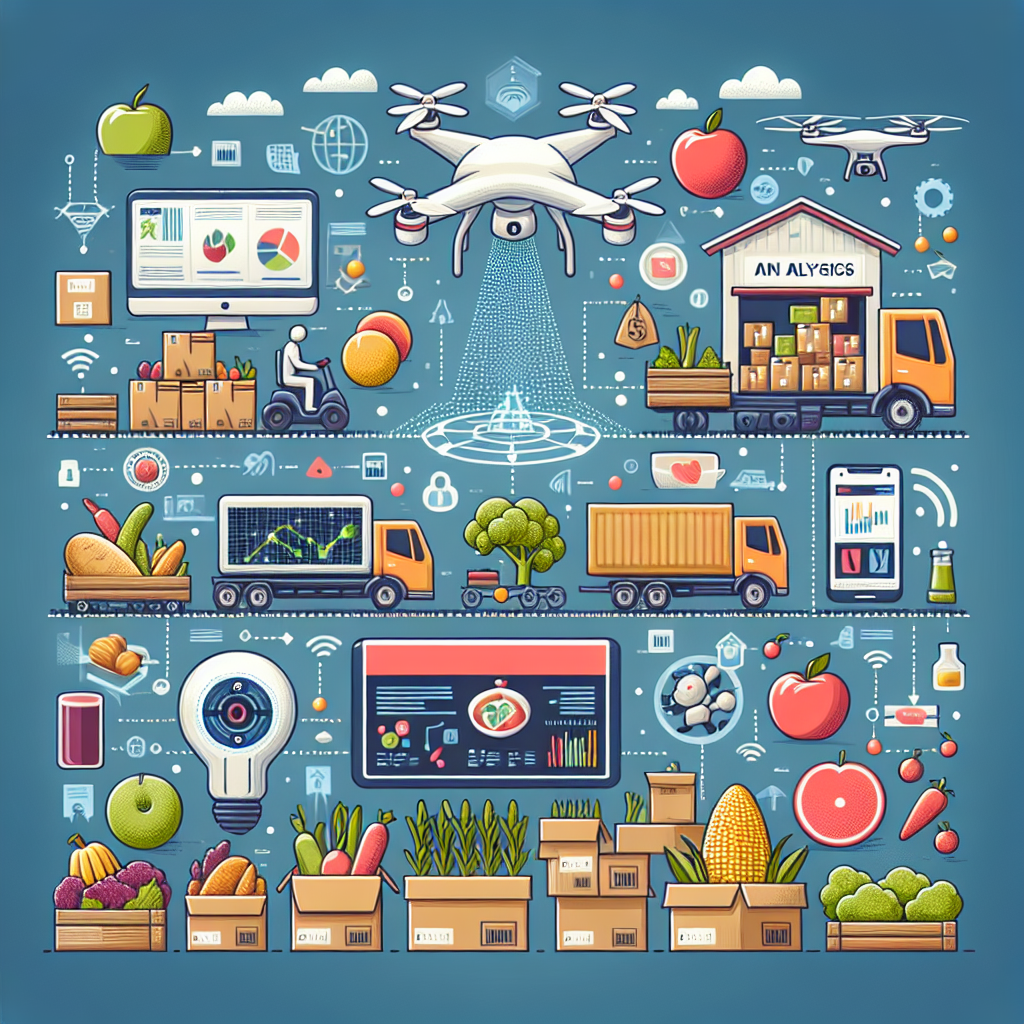In recent years, the food industry has been increasingly focused on ensuring the safety and traceability of products throughout the supply chain. With the rise of AI-driven solutions, companies are now able to enhance their food safety protocols and improve traceability measures like never before. By leveraging the power of artificial intelligence, businesses can detect and prevent potential food safety issues, track products from farm to fork, and ultimately build consumer trust in the quality and safety of their products. In this article, we will explore the various ways in which AI is revolutionizing food safety and traceability in the supply chain.
One of the main benefits of using AI in food safety and traceability is its ability to analyze vast amounts of data in real-time. By collecting data from various sources such as sensors, cameras, and IoT devices, AI algorithms can quickly identify potential risks and issues in the food supply chain. For example, AI can analyze temperature data from refrigeration units to ensure that perishable goods are stored at the correct temperature, reducing the risk of spoilage and contamination.
AI can also be used to detect foodborne pathogens and contaminants at an early stage. By analyzing data from food samples, AI algorithms can identify the presence of harmful bacteria or chemicals and alert manufacturers to take corrective action. This can help prevent foodborne illnesses and outbreaks, ultimately saving lives and protecting consumer health.
In addition to food safety, AI-driven solutions can also improve traceability in the supply chain. By using blockchain technology, companies can create a transparent and immutable record of every step in the production and distribution of food products. This allows for greater visibility into the origins of products, making it easier to track and trace them in the event of a recall or contamination issue.
Furthermore, AI can help optimize supply chain logistics by predicting demand, improving inventory management, and reducing waste. By analyzing historical data and trends, AI algorithms can forecast future demand for products and ingredients, allowing companies to adjust their production schedules accordingly. This not only helps reduce food waste but also ensures that products are delivered to consumers in a timely manner.
Overall, AI-driven solutions are revolutionizing the way food safety and traceability are managed in the supply chain. By leveraging the power of artificial intelligence, companies can enhance their food safety protocols, improve traceability measures, and ultimately build consumer trust in the quality and safety of their products. As the food industry continues to evolve, AI will play an increasingly important role in ensuring the safety and integrity of our food supply.
FAQs:
Q: How does AI help improve food safety in the supply chain?
A: AI can analyze vast amounts of data in real-time to detect potential risks and issues in the food supply chain. By analyzing temperature data, detecting foodborne pathogens, and contaminants, AI algorithms can help prevent foodborne illnesses and outbreaks.
Q: How does AI enhance traceability in the supply chain?
A: AI-driven solutions can create a transparent and immutable record of every step in the production and distribution of food products using blockchain technology. This allows for greater visibility into the origins of products, making it easier to track and trace them in the event of a recall or contamination issue.
Q: How can AI optimize supply chain logistics in the food industry?
A: AI algorithms can predict demand, improve inventory management, and reduce waste by analyzing historical data and trends. This helps companies adjust their production schedules accordingly, reducing food waste and ensuring timely delivery to consumers.

